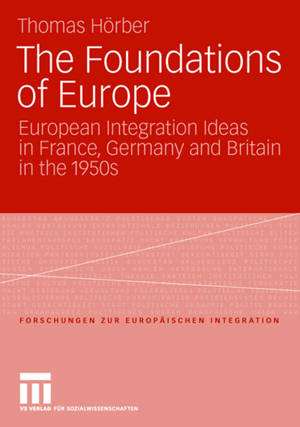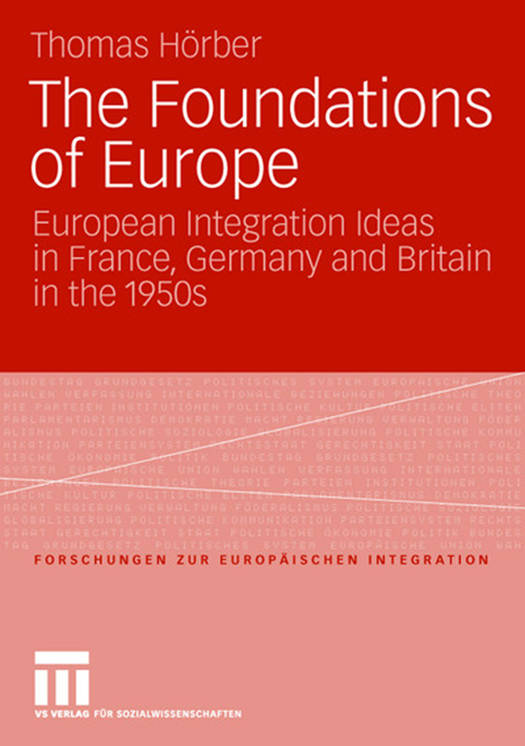
- Afhalen na 1 uur in een winkel met voorraad
- Gratis thuislevering in België vanaf € 30
- Ruim aanbod met 7 miljoen producten
- Afhalen na 1 uur in een winkel met voorraad
- Gratis thuislevering in België vanaf € 30
- Ruim aanbod met 7 miljoen producten
Zoeken
The Foundations of Europe
European Integration Ideas in France, Germany and Britain in the 1950s
Thomas Hörber
€ 52,95
+ 105 punten
Omschrijving
The 1950s can reasonably be called the foundation period of Europe. At the start of the decade pioneering institutions such as the OEEC, the Council of Europe and NATO were already in place. By the end of the 1950s all the major European communities, the ECSC, the EEC and Euratom had been established. 1954 saw a serious crisis for European integration when the European Defence Community treaty was rejected. The replacement in West European Union gave new impetus to European cooperation and new hope for full British involvement. Nevertheless, throughout the decade, it was not at all clear that European integration would be a success, particularly with Britain outside and a colonial alternative open to France, too. ^ One reason for focusing on the early integration period must, therefore, be seen in the wide divergence between Britain, France and Germany with regard to their concept for Europe. Britain's accession to the ECs in 1973 marked the end of the fundamental disaccord whether European integration should happen at all, notwithstanding the continued existence of greatly different opinions on the shape and the way cooperation should take. Not so earlier in the 1950s; British intergov- ernmental preference and the continental European supranational choice, could not be reconciled and kept Britain away. The supranational aspiration survived, even with de Gaulle in power.
Specificaties
Betrokkenen
- Auteur(s):
- Uitgeverij:
Inhoud
- Aantal bladzijden:
- 312
- Taal:
- Engels
- Reeks:
- Reeksnummer:
- nr. 19
Eigenschappen
- Productcode (EAN):
- 9783531151335
- Verschijningsdatum:
- 25/08/2006
- Uitvoering:
- Paperback
- Formaat:
- Trade paperback (VS)
- Afmetingen:
- 148 mm x 210 mm
- Gewicht:
- 471 g

Alleen bij Standaard Boekhandel
+ 105 punten op je klantenkaart van Standaard Boekhandel
Beoordelingen
We publiceren alleen reviews die voldoen aan de voorwaarden voor reviews. Bekijk onze voorwaarden voor reviews.











